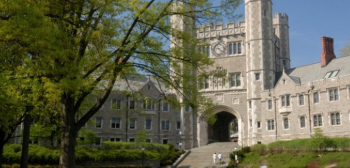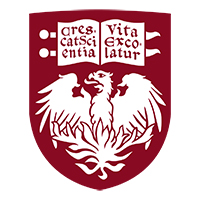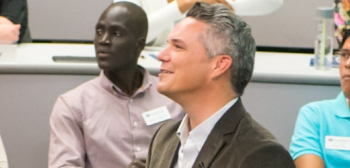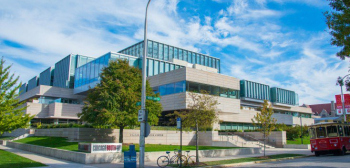- #13 QS Global World Ranking
- Private not for ProfitStatus
- Very HighResearch Output
- 16,933Total Students
- 3,111Faculty
- 5,671Int'l Students
The University’s position in the current QS World University Rankings.
Whether the University is funded by the government of that country or state, or funded by private donations.
The research intensity of the University, based on the number of papers output relative to the University’s size.
The number of full time equivalent students enrolled at the University.
The number of full time equivalent teaching staff employed by the University.
The number of full time equivalent international students enrolled at the University.
University of Chicago
About
Graduate research and professional training have been part of the University of Chicago's history from its inception. It has more than 100 graduate programs in five graduate divisions (biological sciences, humanities, physical sciences, social sciences, and the Institute for Molecular Engineering) as well as seven professional and continuing education schools such as the Pritzker School of Medicine, the Booth School of Business, and the University of Chicago Law School.
Chicago is one of the world’s premier research universities, and graduate students gain access to some of the world’s most innovative scholars and facilities, such as the three major affiliated laboratories, the Argonne National Library, Fermi National Accelerator Library, and the Marine Biological Laboratory.
As well as a wide range of doctoral programs there are also master’s degrees that either terminate after one or two years or lead students towards further doctoral study.
Each school and division of the University of Chicago has its own form of application, and since study is so specialized at graduate level most programs have their own way of deciding which applicants they wish to admit.
Generally, an application to UChicago graduate school will mean completing an online application form and submitting university transcripts, GRE and subject test scores, a personal statement, letters of recommendation, an up-to-date resume, and any additional material (e.g. essays) that may be required.
International students may also have to submit the results of standardized English language tests. The progress of an application can be tracked online, and the university advises students to apply as early as possible.
UChicago helps graduate and professional school students pay for their education in manifold ways. The cost of programs varies, but in the humanities division work out at around $11,000 per quarter for the first four years, and $3,500 per quarter for years five to 12. Most PhD students receive a full, five-year package, however, which includes tuition and a generous stipend.
Master’s programs cost around $3,759 per quarter per course. Funding arrangements differ, from the doctoral level, with many master’s programs offering merit-based aid awards and a few offering need-based funding aid.
About
Graduate research and professional training have been part of the University of Chicago's history from its inception. It has more than 100 graduate programs in five graduate divisions (biological sciences, humanities, physical sciences, social sciences, and the Institute for Molecular Engineering) as well as seven professional and continuing education schools such as the Pritzker School of Medicine, the Booth School of Business, and the University of Chicago Law School.
Chicago is one of the world’s premier research universities, and graduate students gain access to some of the world’s most innovative scholars and facilities, such as the three major affiliated laboratories, the Argonne National Library, Fermi National Accelerator Library, and the Marine Biological Laboratory.
As well as a wide range of doctoral programs there are also master’s degrees that either terminate after one or two years or lead students towards further doctoral study.
Each school and division of the University of Chicago has its own form of application, and since study is so specialized at graduate level most programs have their own way of deciding which applicants they wish to admit.
Generally, an application to UChicago graduate school will mean completing an online application form and submitting university transcripts, GRE and subject test scores, a personal statement, letters of recommendation, an up-to-date resume, and any additional material (e.g. essays) that may be required.
International students may also have to submit the results of standardized English language tests. The progress of an application can be tracked online, and the university advises students to apply as early as possible.
UChicago helps graduate and professional school students pay for their education in manifold ways. The cost of programs varies, but in the humanities division work out at around $11,000 per quarter for the first four years, and $3,500 per quarter for years five to 12. Most PhD students receive a full, five-year package, however, which includes tuition and a generous stipend.
Master’s programs cost around $3,759 per quarter per course. Funding arrangements differ, from the doctoral level, with many master’s programs offering merit-based aid awards and a few offering need-based funding aid.
University highlights
- 2012#8
- 2014#9
- 2015#11
- 2016#10
- 2017#10
- 2018#9
- 2019#9
- 2020#10
- 2021#9
- 2022#10
- 2023#10
- 2024#11
- 2025#21
- 2026#13
Scholarships
Campus locations
University of Chicago,
Edward H. Levi Hall, 5801 South Ellis Avenue , Chicago , Illinois , United States , 60637
5801 South Ellis Avenue, Edward H. Levi Hall,
5801 South Ellis Avenue, Edward H. Levi Hall , Chicago , Illinois , United States , 60637
5807 S. Woodlawn Ave.,
5807 S. Woodlawn Ave. , Chicago , Illinois , United States , 60637
London Campus,
London, United Kingdom , London , United Kingdom ,
Similar Universities
Temple University
1801 North Broad Street, Philadelphia
651-700 QS World University Rankings 5 QS starsUniversity of Texas Arlington
701 S. Nedderman Drive, Arlington
Rochester Institute of Technology (RIT)
Lomb Memorial Drive, Rochester
Savannah College of Art and Design
516 Drayton St, Savannah
Maryland Institute College of Art
1300 W. Mount Royal Avenue, Baltimore
ASU - Thunderbird School of Global Management
400 E Van Buren, Phoenix
Seton Hall University
400 S Orange Ave, South Orange, South Orange
Related content

Top US Universities by State…

10 of the Cheapest Student C…

Top 10 Best Student Cities i…
Test preparations
Featured University


-
10 UG & 47 PGTotal courses
-
Private for ProfitStatus
-
HighResearch output




















